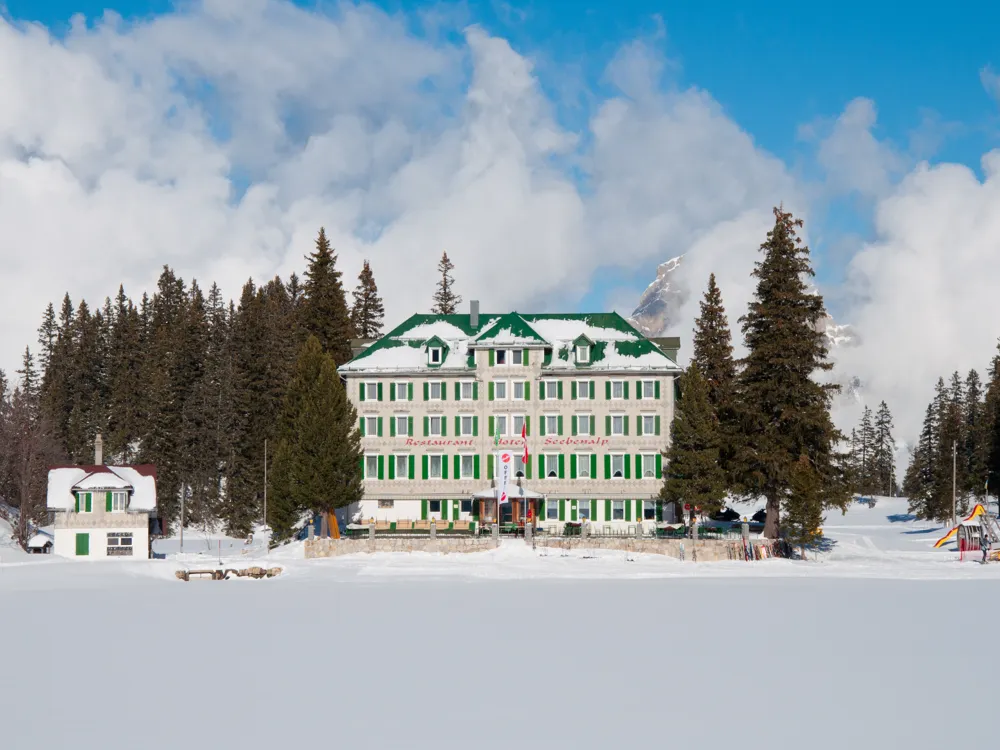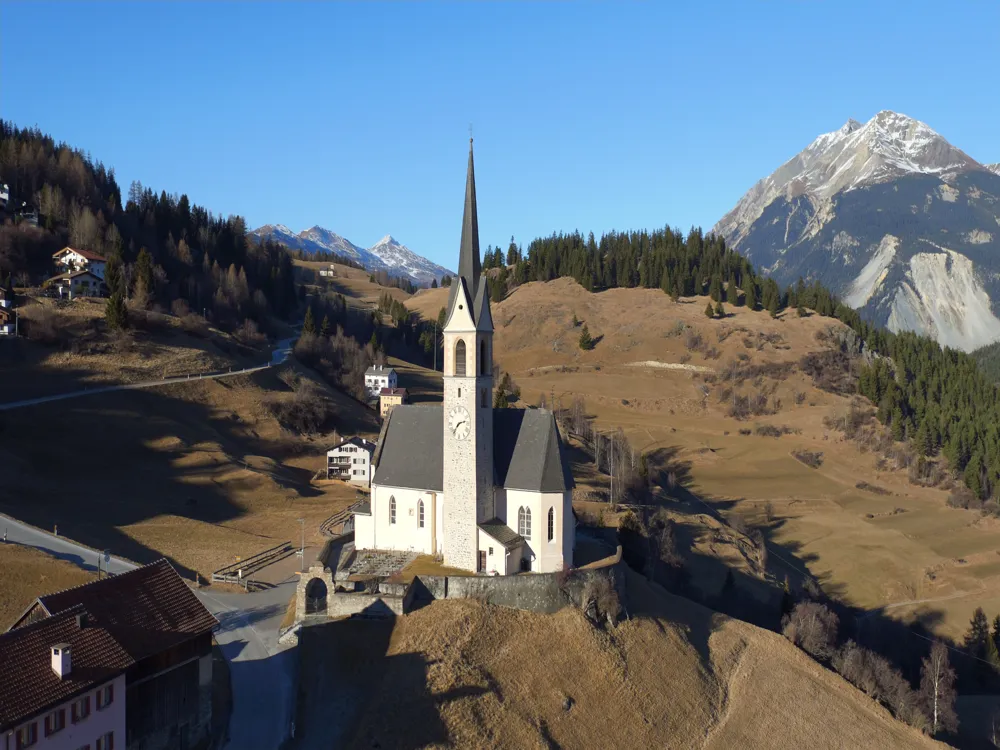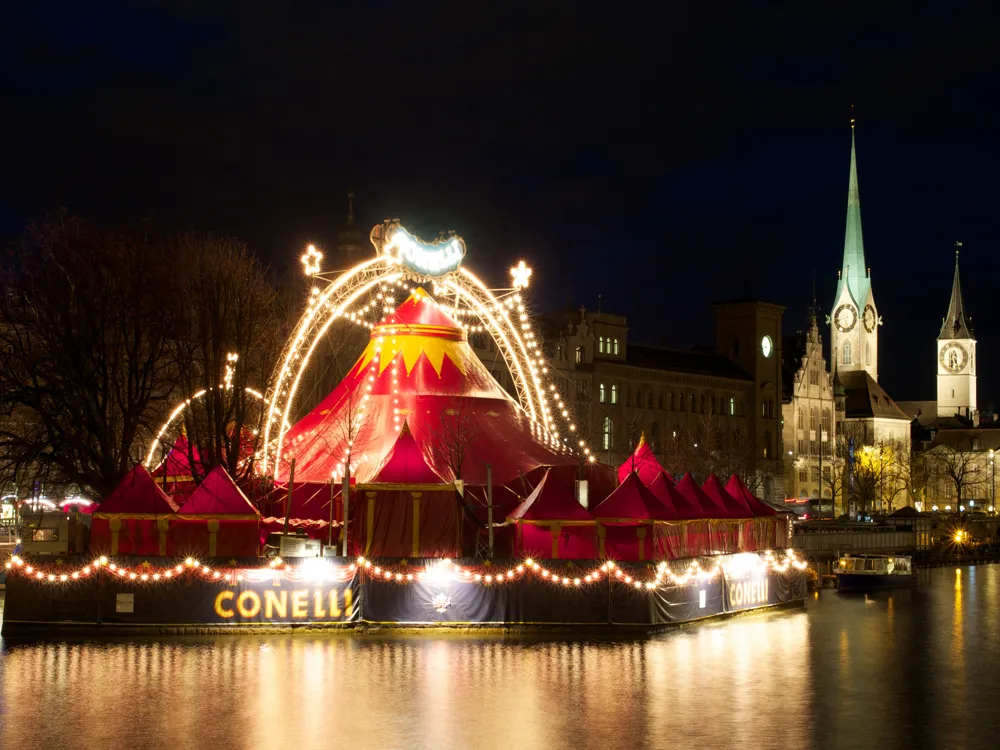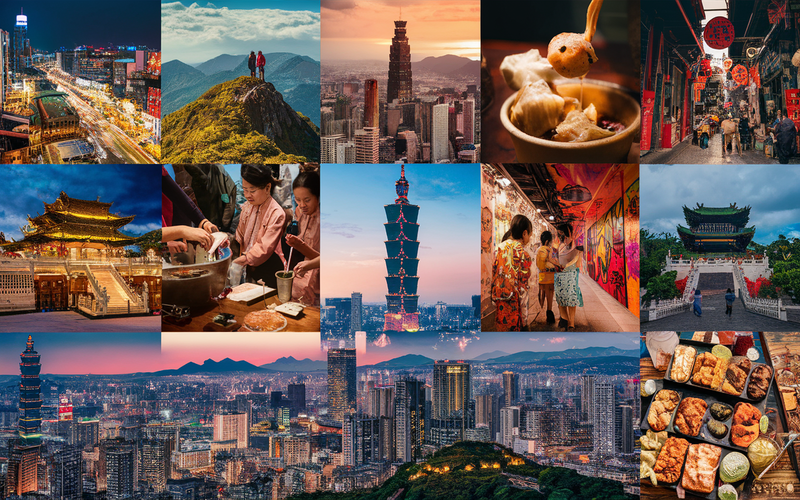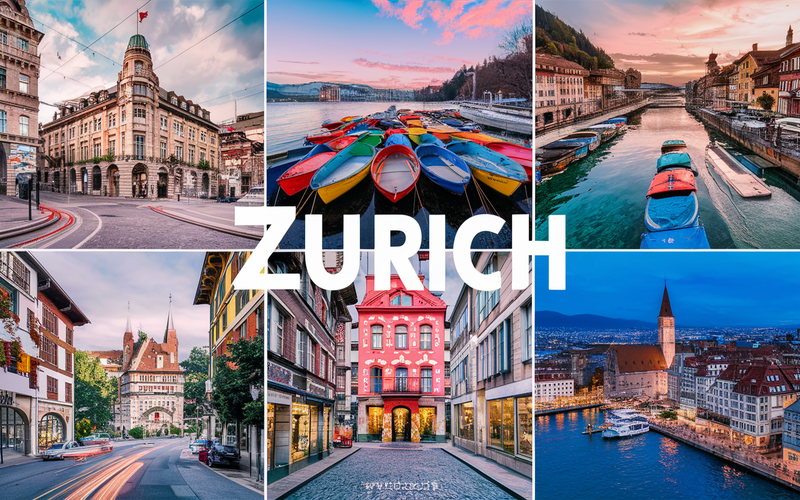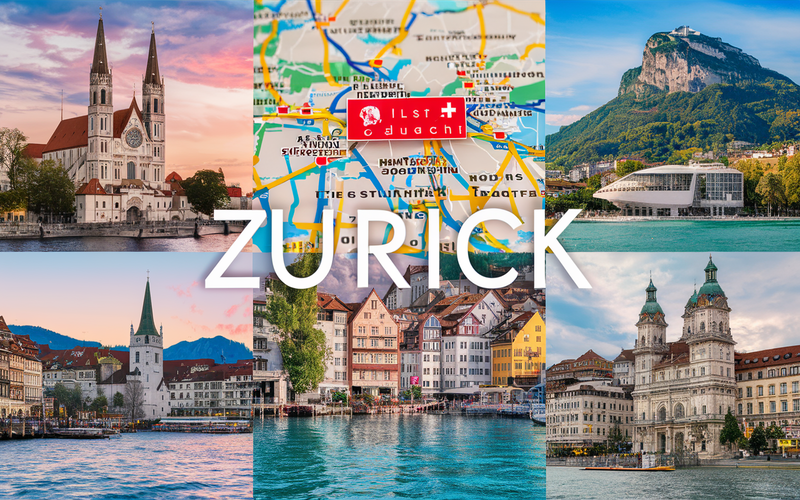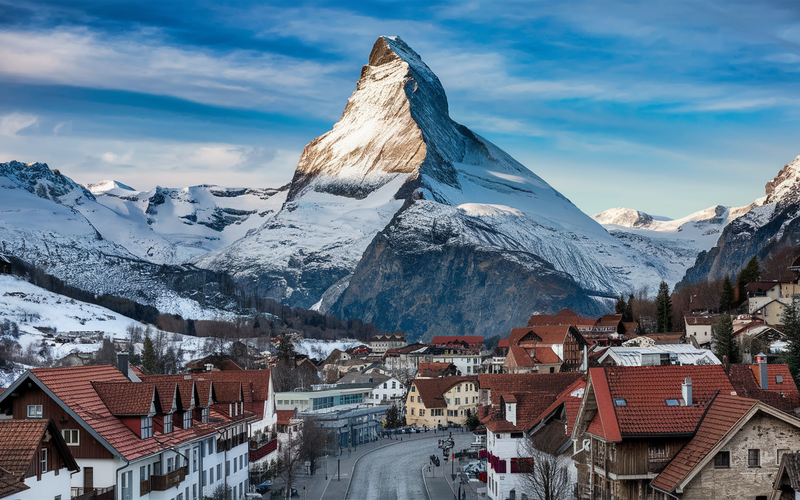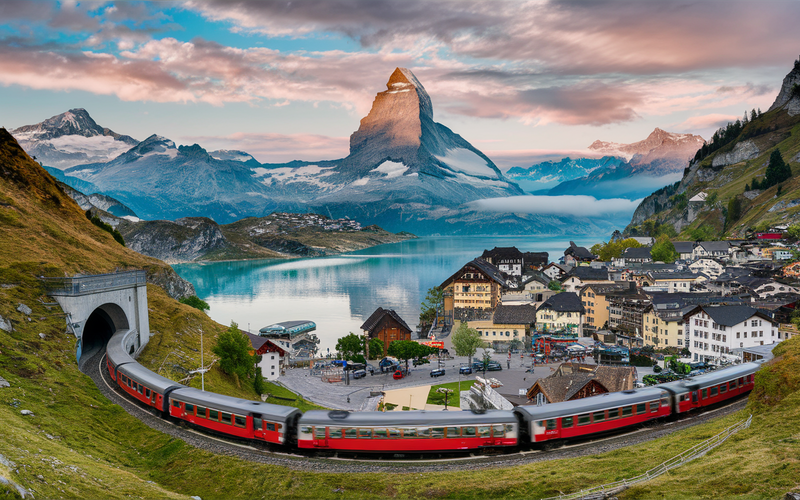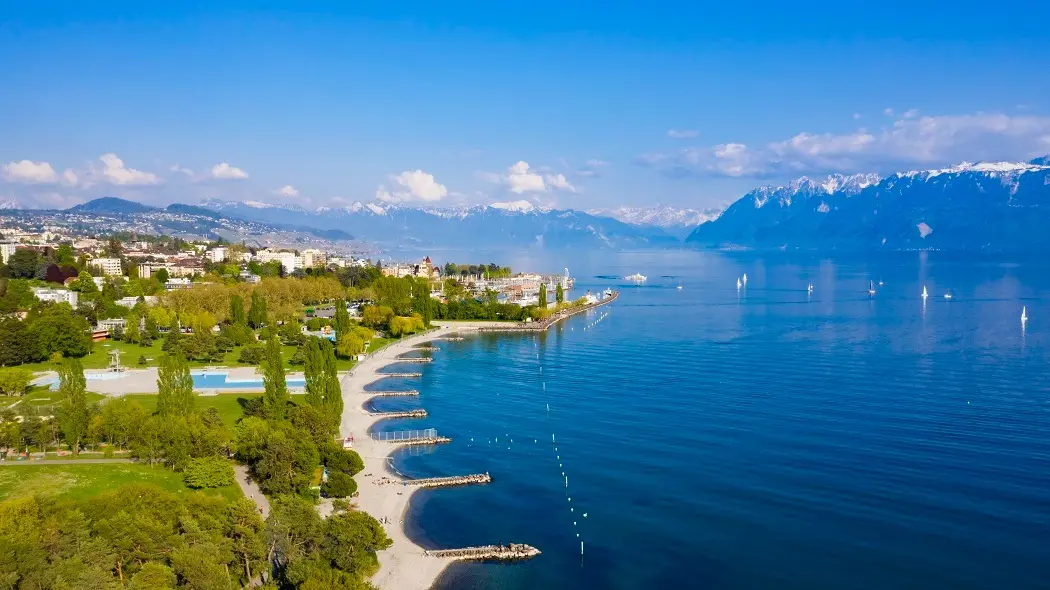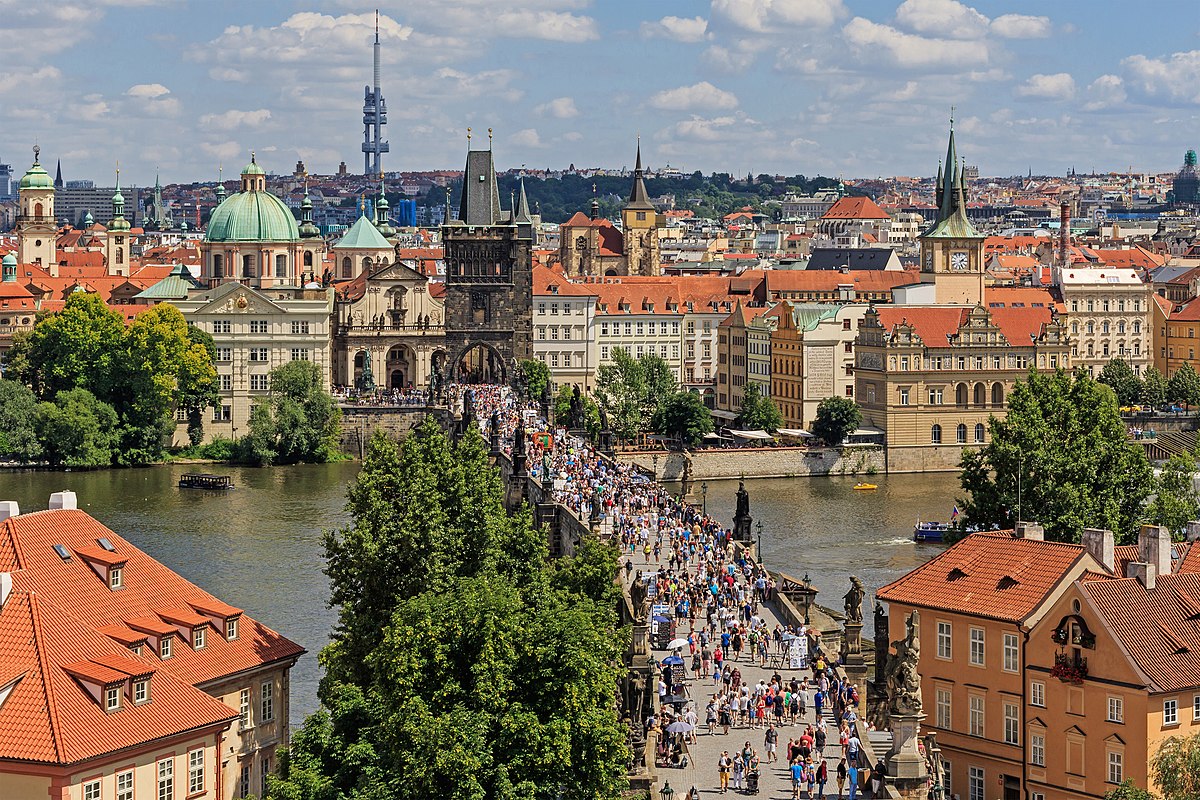Plan Your Travel To Switzerland
Switzerland Travel Essentials
Currency: Swiss Franc (CHF)
Best Time: Mid December - Mid October Read More
Budget: CHF 200 - CHF 300 per day
"For the experimental traveller"
Switzerland Tourism
Switzerland, a European alpine haven, is celebrated for its stunning landscapes, precision craftsmanship, and multicultural allure. Zurich, the financial hub, offers cosmopolitan elegance, while cities like Lucerne and Geneva are steeped in history. Explore the Swiss Alps for thrilling skiing, hiking, and breathtaking vistas. Switzerland's pristine lakes, such as Lake Geneva and Lake Lucerne, offer serene getaways. Swiss watches, chocolates, and cheese are famous worldwide. With a commitment to sustainability and a blend of Swiss, French, German, and Italian cultures, Switzerland welcomes travelers to savor its natural beauty, precision engineering, and warm hospitality amid a backdrop of snow-capped peaks and charming villages.
Must Know Before You Travel to Switzerland
- Currency: The official currency is the Swiss Franc (CHF). Credit cards are widely accepted.
- Language: Swiss German, French, and Italian are the main languages. English is also commonly spoken.
- Weather: Switzerland experiences distinct seasons, so pack accordingly.
- Transport: Swiss public transportation is efficient. Consider purchasing a Swiss Travel Pass for unlimited travel on trains, buses, and boats.
- Electricity: The standard voltage is 230V, and the plugs are of Type J.
- Safety: Switzerland is a safe destination, but exercise the usual precautions.
- Tipping: Service charges are included, but rounding up the bill is appreciated.
- Public Transportation: Switzerland has an excellent public transportation system, including trains, buses, and boats. The Swiss Travel Pass offers convenient and unlimited travel on public transportation for tourists.
- Cultural Etiquette: Swiss culture values punctuality, cleanliness, and respect for personal space. Greet with a handshake, and it's customary to say "Bonjour" or "Grüezi" when entering a room.
- Healthcare: Switzerland has a high-quality healthcare system. If you're from the EU or EFTA, bring your European Health Insurance Card (EHIC). Otherwise, consider travel insurance that covers medical expenses.
- Mountain Safety:
- If you plan to engage in mountain activities, be aware of the safety guidelines. Check the weather conditions and inform someone about your plans before venturing into the mountains.
- Swiss Cuisine: Swiss cuisine is diverse, with specialties such as cheese fondue, raclette, and chocolate. Try local dishes and explore the culinary offerings in each region.
- Tipping: Tipping is customary in Switzerland. Service charges may be included in the bill, but it's common to round up or leave an additional tip for good service.
- Time Zone: Switzerland operates on Central European Time (CET), which is GMT+1.
Tourist Places to Visit In Switzerland
Zurich
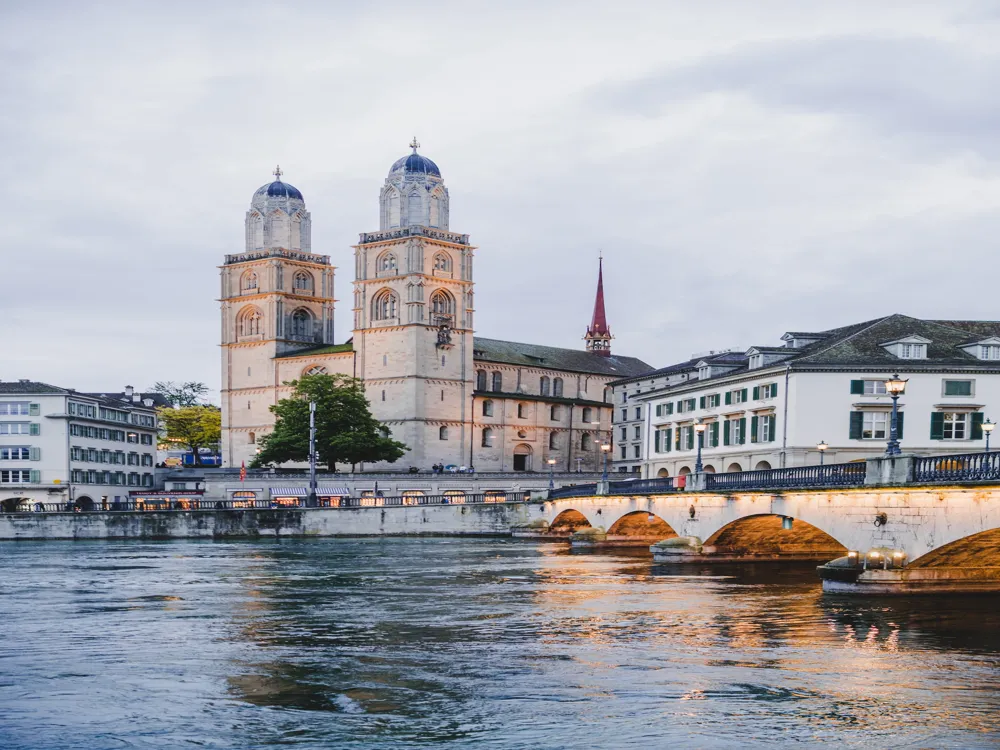
Geneva
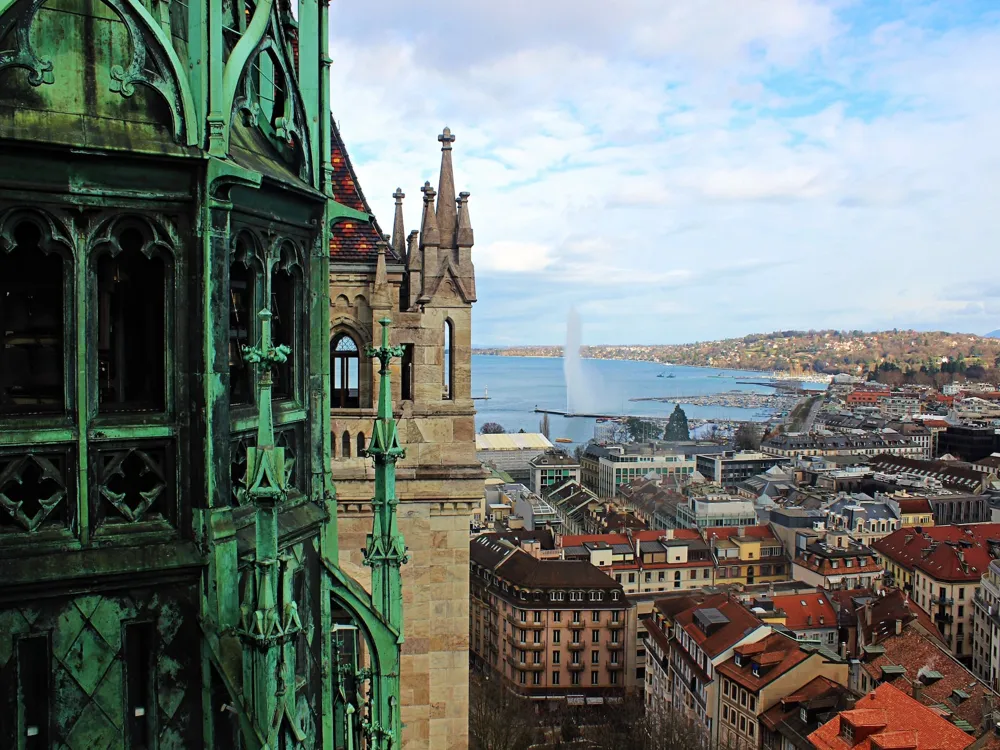
Lucerne
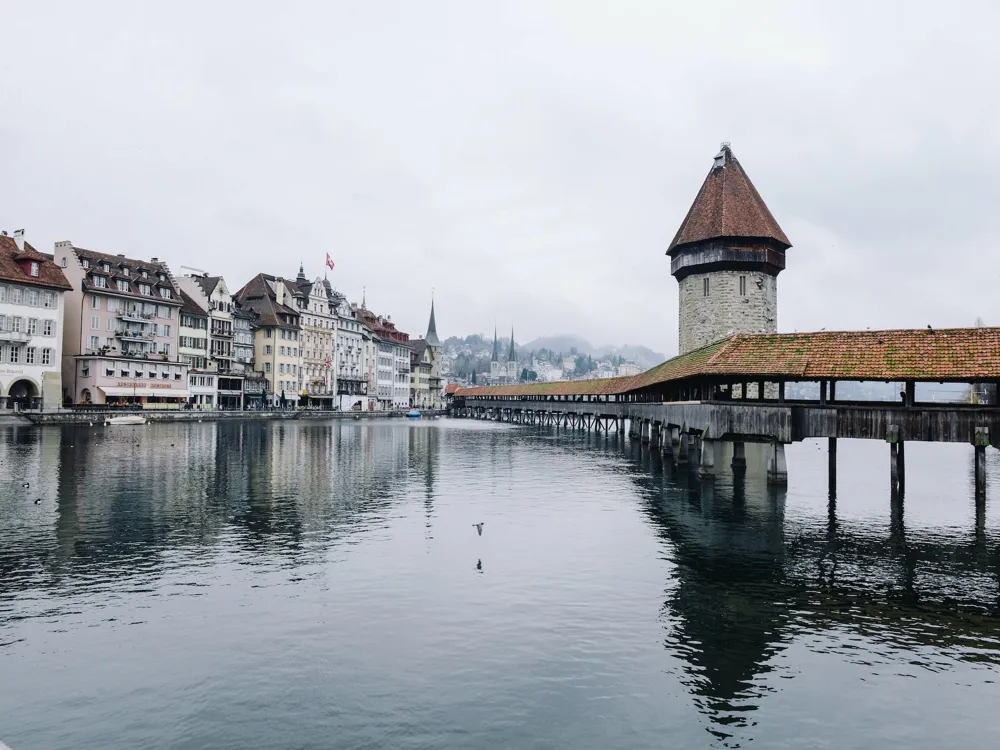
Lausanne
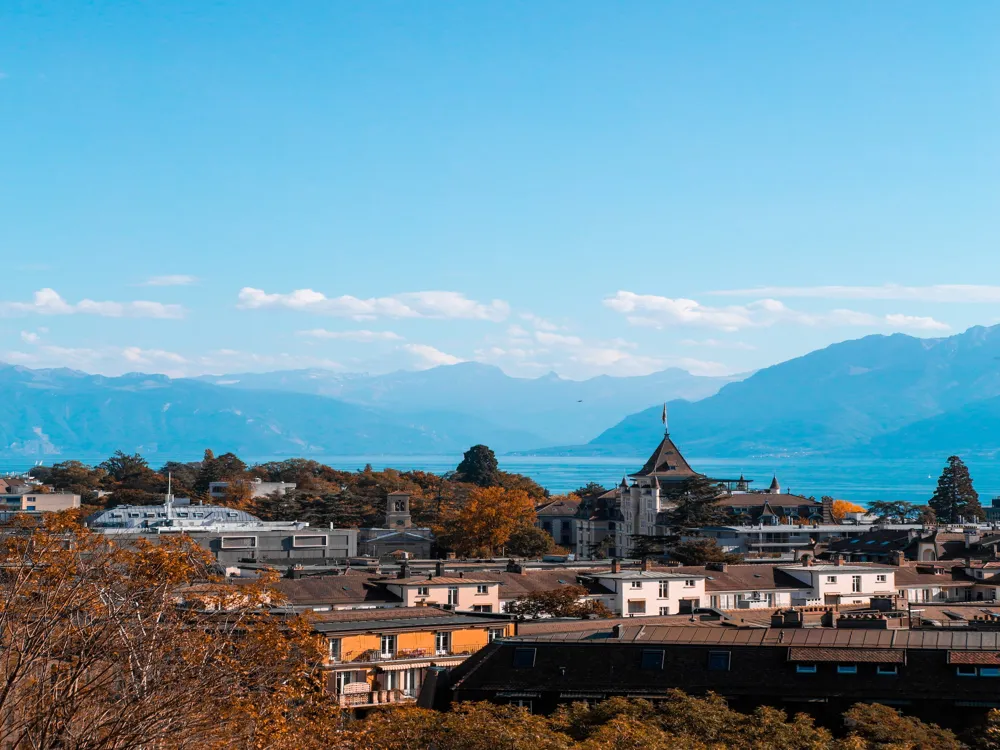
Zermatt
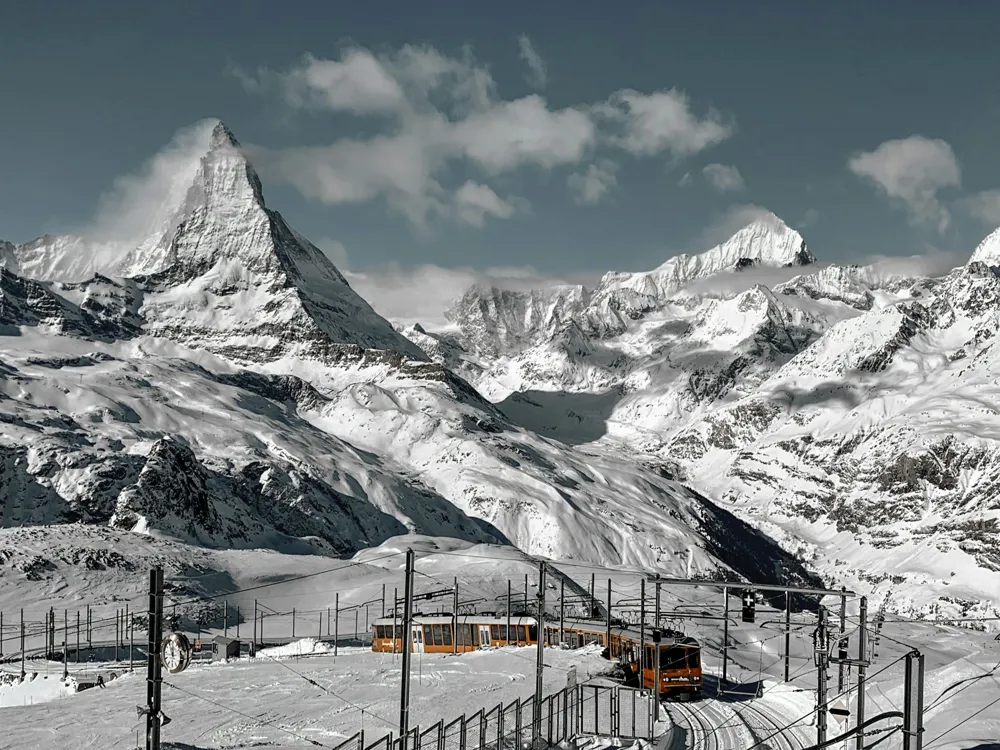
Switzerland Travel Packages
Compare quotes from upto 3 travel agents for free
View All Packages For Switzerland
More on Switzerland Travel
All collections about Switzerland
Best time to visit Switzerland
Switzerland is a year-round destination because it has four unique seasons, each with their own attractions and charms. Heavy rain and fog occur in November and early December, which causes many major tourist attractions, particularly on the ski slopes, to close. Depending on your itinerary for the trip, you may determine which season is ideal for you. Many large tourism businesses, particularly in the ski resorts, close. Depending on your itinerary for the trip, you may determine which season is ideal for you.
Top Stories about Switzerland Tourism
Read More on Switzerland Travel
Money Exchange
When visiting Switzerland, it's important to know about currency exchange. The official currency is the Swiss Franc (CHF). While major credit cards are widely accepted, having some cash on hand is useful, especially in rural areas. You can exchange money at banks, currency exchange offices, or ATMs, which are prevalent. Rates are competitive, and it's advisable to compare options for the best deal. Keep in mind that Switzerland is known for its high cost of living, so plan your budget accordingly. It's also wise to inform your bank about your travel plans to avoid any issues with your cards.
Nightlife in Switzerland:
Switzerland offers a vibrant nightlife scene with a mix of cultural experiences. Cities like Zurich, Geneva, and Basel come alive after dark. You can enjoy trendy bars, nightclubs, and live music venues. Swiss nightlife is known for its diversity, catering to all tastes, from electronic music enthusiasts to jazz lovers. The nightlife is generally safe and well-regulated. However, remember that Switzerland has a high cost of living, so drinks and entrance fees can be pricey. Be prepared for a sophisticated and stylish atmosphere in Swiss nightlife, and enjoy the unique experiences each city has to offer.
Shopping in Switzerland:
Switzerland offers a shopping experience that blends luxury and tradition. The country is famous for Swiss watches, chocolates, and designer boutiques. Zurich's Bahnhofstrasse is one of the world's premier shopping streets, featuring top brands. Swiss markets and quaint villages provide opportunities to purchase local products like cheese, cuckoo clocks, and Swiss army knives. Remember that Switzerland is an expensive destination, so be prepared to splurge a bit. Don't forget to claim your VAT refund for eligible purchases, and explore the unique shopping experiences in both bustling urban centers and charming alpine towns.
Festivals in Switzerland:
Switzerland hosts a variety of vibrant festivals throughout the year. In the summer, the Montreux Jazz Festival and Locarno Film Festival are internationally renowned, drawing music and film enthusiasts. In winter, the country celebrates Fasnacht (Carnival) with colorful parades in various cities, including Basel. The Geneva International Motor Show showcases cutting-edge automobiles. Christmas markets in cities like Zurich and Lucerne offer festive cheer. Swiss National Day on August 1st is celebrated with fireworks and patriotic fervor. From cultural to sporting events, Switzerland's festival calendar provides a rich tapestry of experiences that capture the nation's diversity and love for tradition.
Hygiene in Switzerland:
Switzerland is known for its cleanliness and high hygiene standards. The tap water is safe to drink everywhere, and the country's sanitation facilities are well maintained. Swiss cities are remarkably clean, and littering is strongly discouraged. In public places, you'll find clean restrooms and hand sanitizers. Swiss citizens prioritize personal hygiene and cleanliness, so it's advisable to follow suit. However, the cost of living in Switzerland is high, so be prepared for the associated expenses, including dining out and purchasing personal hygiene products. Overall, Switzerland's commitment to hygiene and cleanliness ensures a pleasant and healthy visit.
Tips for visiting Switzerland:
- When traveling to Switzerland, consider these tips for a smooth experience.
- First, check the weather, as it can vary greatly by region.
- The Swiss Franc (CHF) is the official currency, and credit cards are widely accepted, but cash is handy, especially in rural areas.
- Switzerland is expensive, so budget accordingly. Public transport is efficient and offers stunning scenic routes, so consider a Swiss Travel Pass.
- Respect local customs, such as punctuality and recycling. Tipping is customary but included in bills.
- Lastly, learn basic French, German, or Italian phrases, depending on the region, to enhance your interactions with locals and make your journey more enjoyable.
Food of Switzerland:
The varied customs and culture of Switzerland are reflected in its cuisine. Fondue, a meal of melted cheese paired with potatoes and bread, is a staple of Swiss cuisine. Another cheesy treat is a raclette. A mainstay is rösti, a crispy potato dish. The world is familiar with Swiss chocolate, and sampling pralines and truffles is a must. Hearty Alpine fare like sausages and mountain cheeses is also available in Switzerland. Don't pass on the well-known breakfast choice, Bircher Muesli. Cheeses and wines from Switzerland, such as Gruyère and Emmental, are delectable. Although eating out in Switzerland might be costly, the high calibre and diversity of the food make it a unique gourmet experience.
Photos of Switzerland
All Country Photos Switzerland
Popular Questions And Answers on Switzerland
What's the best time to visit Switzerland?
The best time to visit Switzerland is during the summer months of June to August or the winter season from December to February, depending on your interests. Summer is perfect for outdoor activities, while winter is ideal for skiing and snow sports.
What are the must-visit cities in Switzerland?
Some must-visit cities include Zurich, Geneva, Lucerne, and Bern for their rich history and cultural attractions. Interlaken and Zermatt are great for outdoor enthusiasts.
What's the currency used in Switzerland?
The currency used in Switzerland is the Swiss Franc (CHF). Credit cards are widely accepted, and ATMs are readily available.
Do I need a visa to visit Switzerland?
Switzerland is part of the Schengen Agreement, which allows many tourists to enter visa-free for up to 90 days. Check the specific visa requirements for your nationality before traveling.
What are the famous Swiss dishes to try?
Don't miss Swiss fondue, raclette, and rosti. Swiss chocolate and Swiss watches are also famous for their quality.
Is Switzerland an expensive destination?
Switzerland is known for its high cost of living, so it can be relatively expensive for tourists. However, with careful planning, you can manage your budget.
What are the top outdoor activities in Switzerland?
Switzerland offers hiking, skiing, snowboarding, and mountaineering in the Swiss Alps. You can also enjoy water sports on the beautiful lakes.
How's the public transportation in Switzerland?
Switzerland has an excellent public transportation system, including trains, trams, and buses. The Swiss Travel Pass offers unlimited travel on these networks.
What's the official language of Switzerland?
Switzerland has four official languages: German, French, Italian, and Romansh. The language spoken depends on the region you visit.
Are there any cultural etiquettes to be aware of in Switzerland?
It's polite to greet with a handshake, say

